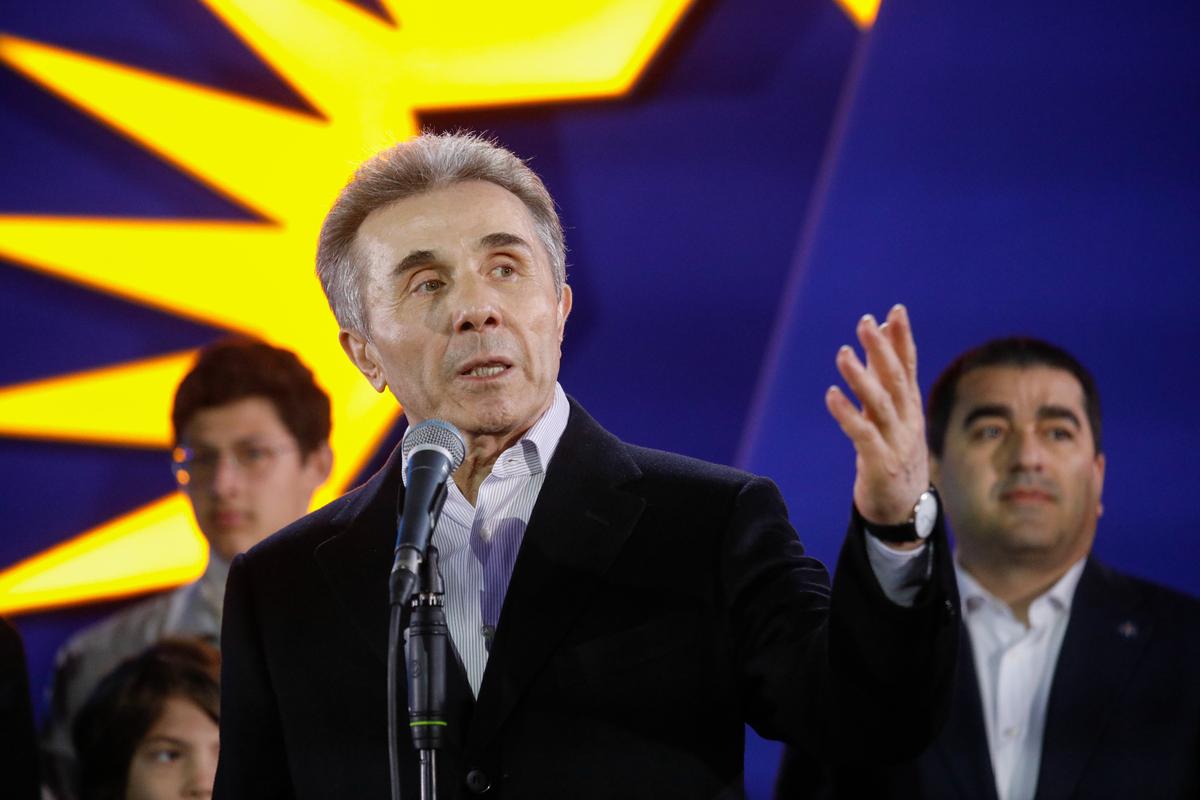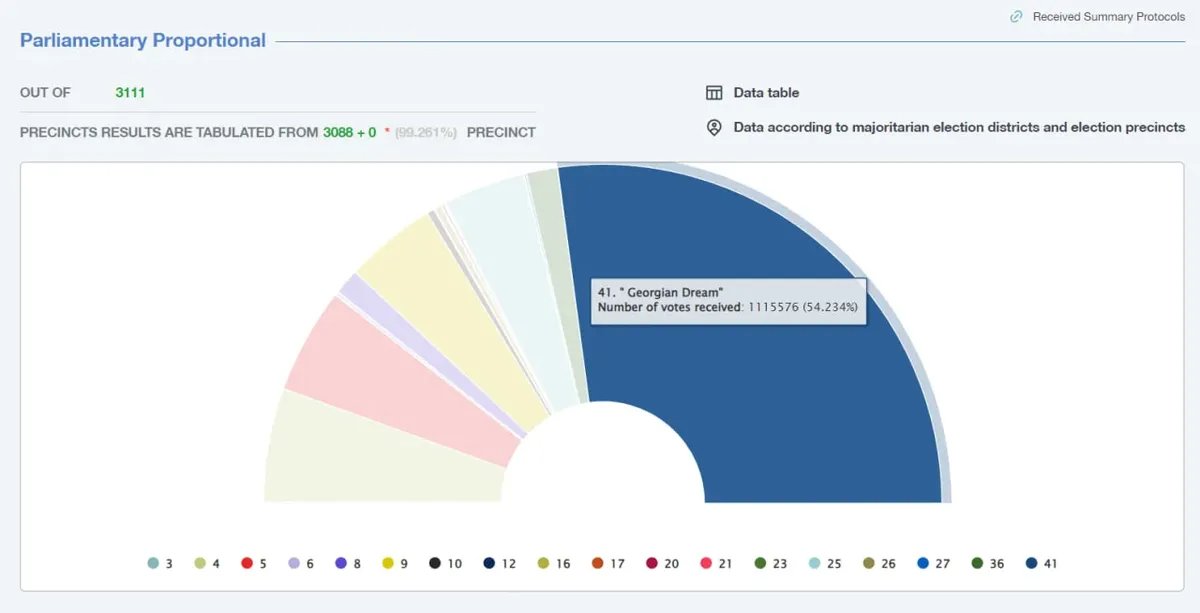
Georgian Dream founder Bidzina Ivanishvili speaks following the closure of the polls in Georgia’s parliamentary elections, Tbilisi, Georgia, 26 October 2024. Photo: EPA-EFE / DAVID MDZINARISHVILI
Georgia’s ruling party has achieved a decisive win in Saturday’s pivotal parliamentary elections, the country’s Central Election Commission announced on Sunday morning, though the opposition denounced the election as “stolen” amid widespread reports of voting irregularities on election day.
With votes counted in over 99% of precincts, the Central Election Commission (CEC) said that the governing Georgian Dream party had received 54% of the vote, which equates to around 91 seats in the 150-member parliament. The win is enough for Georgian Dream to stay in power but short of the 113 seats required to gain a constitutional majority that would allow the party to enact some of its campaign pledges, including banning virtually all opposition parties.
The four opposition groups — the Coalition for Change, Unity — To Save Georgia, Strong Georgia, and For Georgia — collectively received 39% of the vote.
Exit polls released at 8pm on Saturday told two very different stories, however. A poll conducted by pro-government channel Imedi TV gave Georgian Dream 56% of the vote, while opposition polls gave them no more than 42%. Both sides celebrated as they claimed victory, until the CEC announced that Georgian Dream was leading with 52.99% of the vote late on Saturday night.

Discrepancies in results only fuelled anger among the opposition, who have unanimously declared that they would not recognise the election results.
“We declare that we will not recognise the results of these stolen elections,” said Tina Bokuchava, chairperson of the main opposition party United National Movement. “We will not give up our European future and we will not accept the stolen election results announced by the Central Election Commission.”
Nika Gvaramia, a member of the Coalition for Change — the opposition group that garnered the largest share of votes — accused the government of orchestrating a “constitutional coup.”
Just 10 minutes after contested exit polls were released, and with votes still yet to be counted, Hungarian Prime Minister Viktor Orbán congratulated his Georgian counterpart Irakli Kobakhidze and Georgian Dream on what he called dtheir “overwhelming victory” in the elections. “The people of Georgia know what is best for their country, and made their voice heard today!”, Orbán said.
Georgian Dream’s billionaire founder Bidzina Ivanishvili also claimed victory shortly after polls closed on Saturday by describing it as “rare in the world for the same party to achieve such success in such a difficult situation.”
Margarita Simonyan, editor-in-chief of Russian propaganda broadcaster RT, posted on X, “The Georgians won. Well done.”
In several regions with large ethnic minority populations, Georgian Dream received abnormally large majorities, with up to 90% of the vote going to the ruling party.
Nationwide voter turnout was nearly 59%, the highest since Georgian Dream came to power in 2012. Results show that Georgian Dream lost the vote in the capital Tbilisi and at overseas polling stations but maintained strong support in rural areas.
Many Georgians considered the vote to be a referendum on the country’s chances of joining the European Union, a commitment enshrined in the country’s constitution. Georgian Dream pledged as part of its election campaign that the country would join the EU by 2030, but on its “own terms” and “with dignity”.
The opposition have consistently argued that the ruling party is dragging the country into Russia’s orbit. A slew of controversial policies passed this year, including a law on “foreign agents” and legislation combating “LGBT propaganda”, have alienated the EU, which has stalled Georgia’s accession process.
